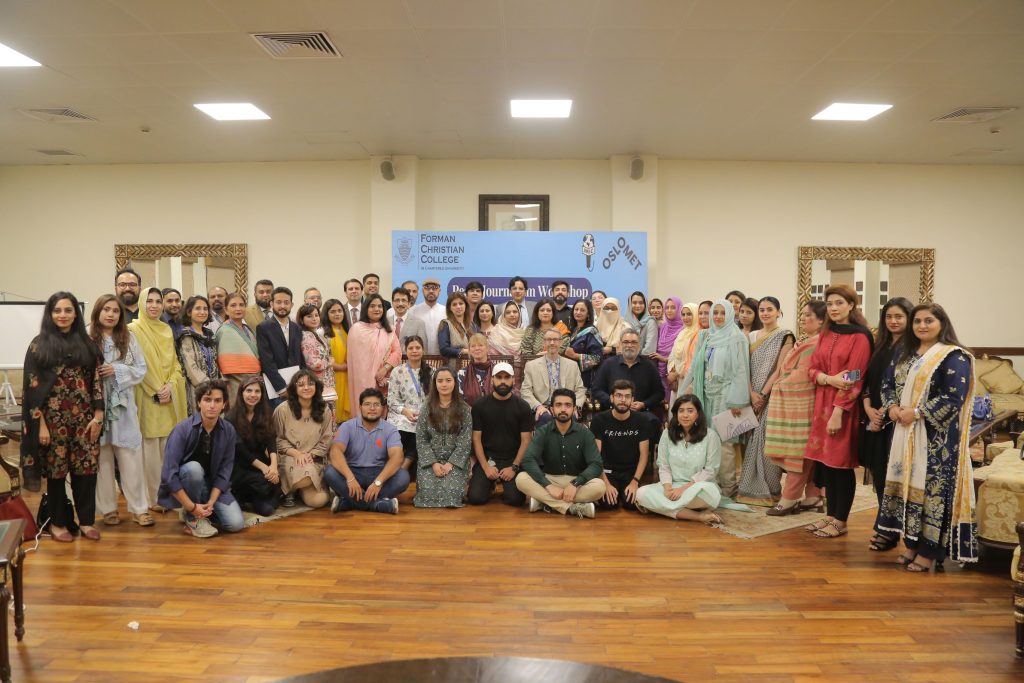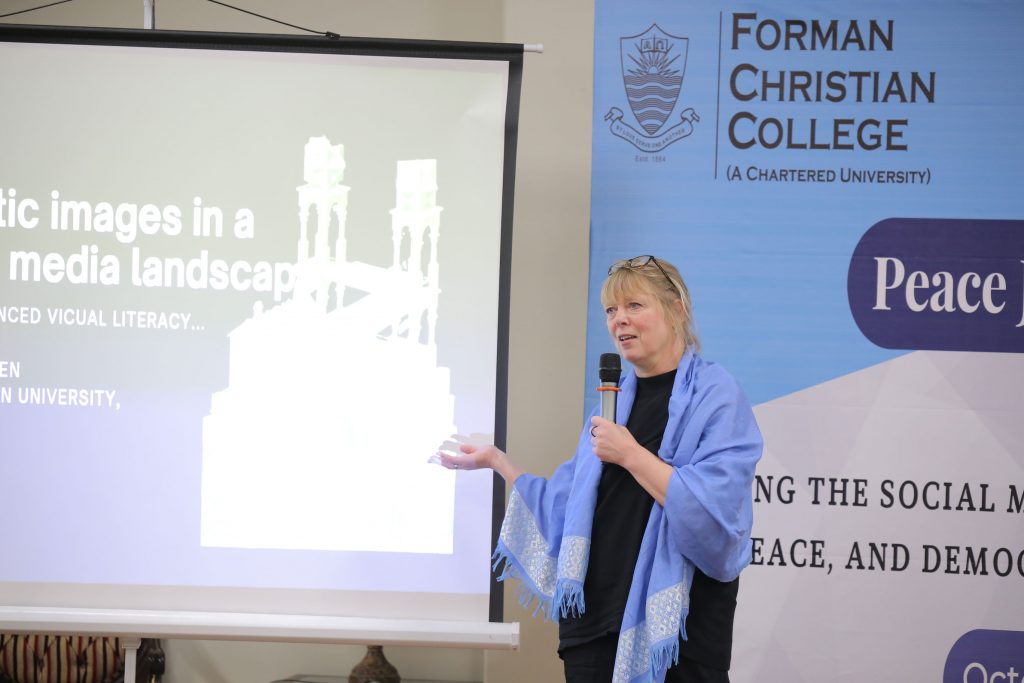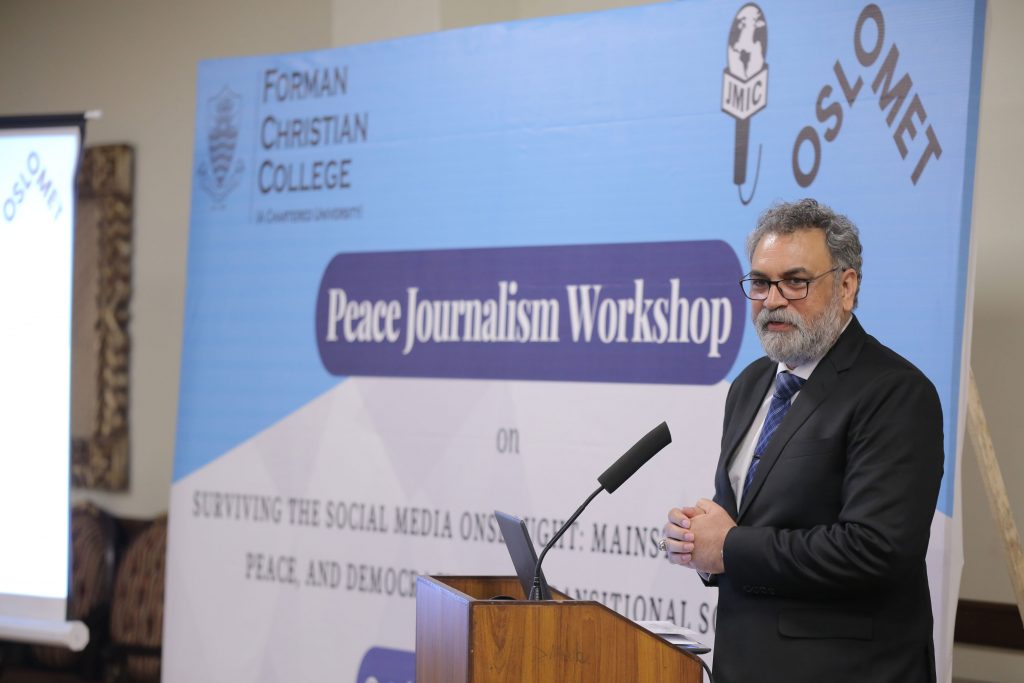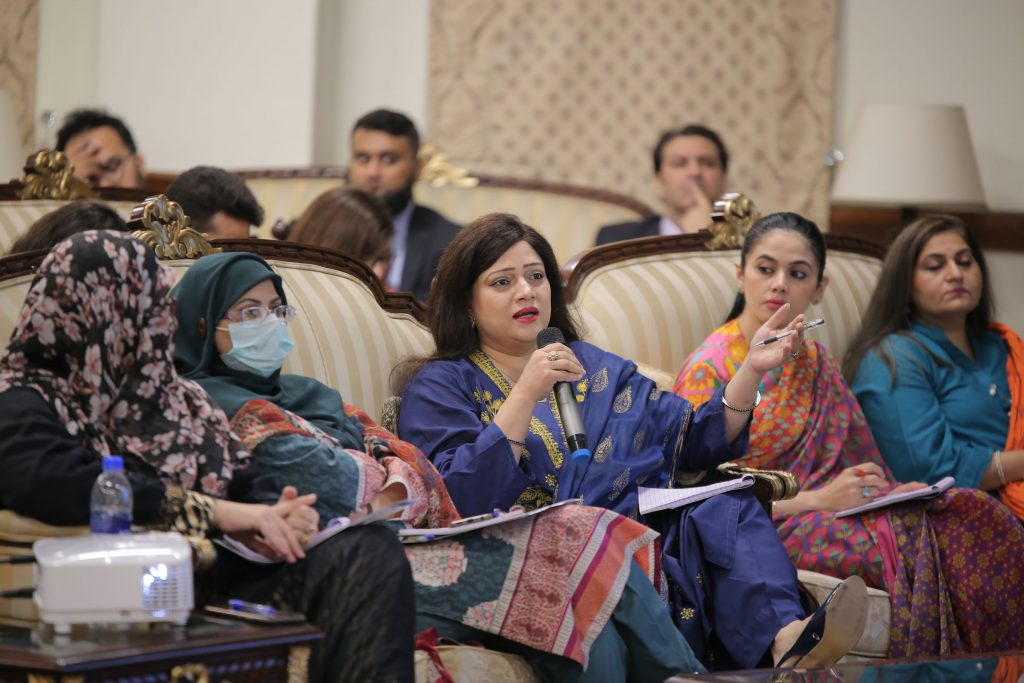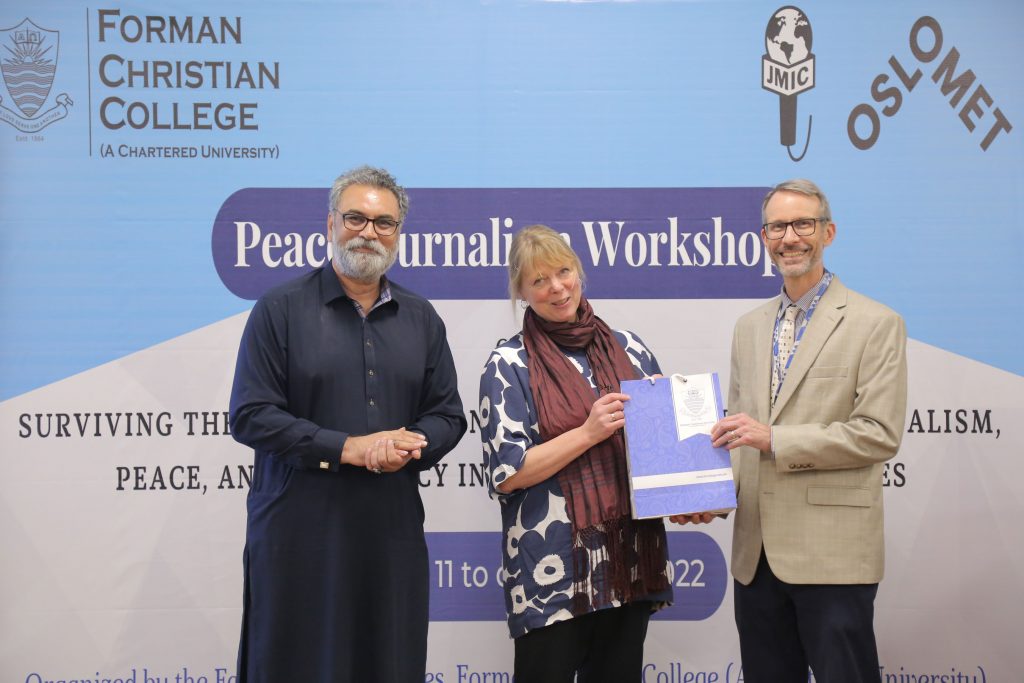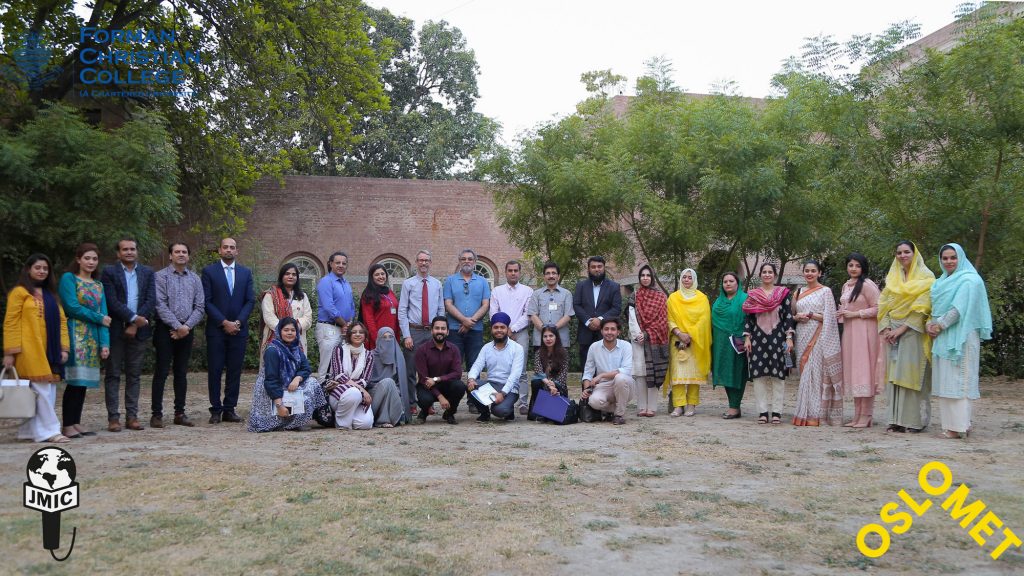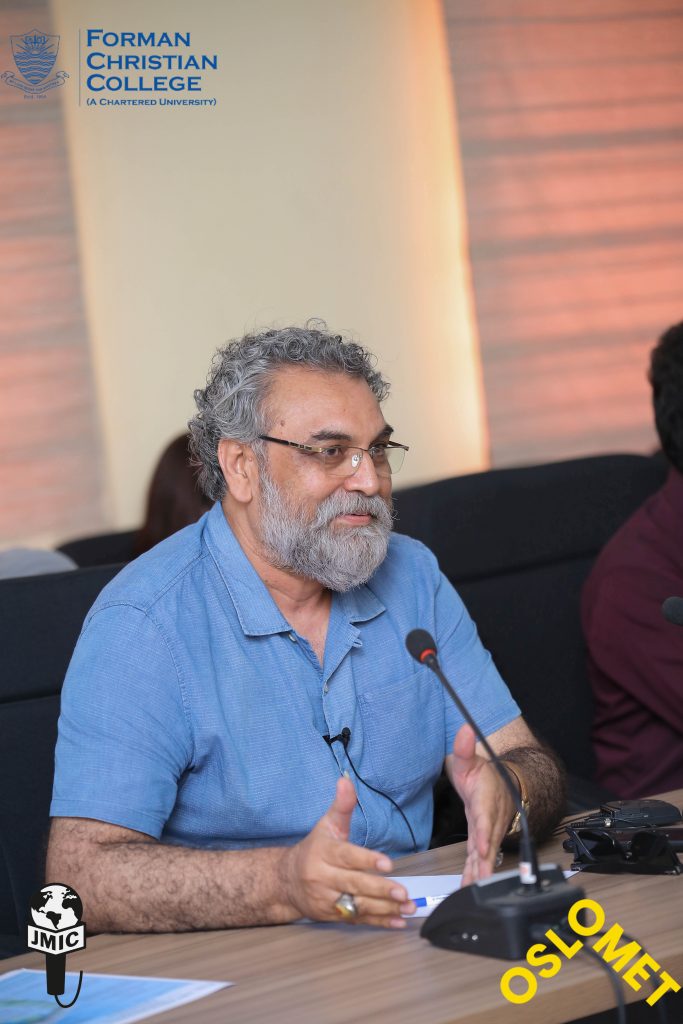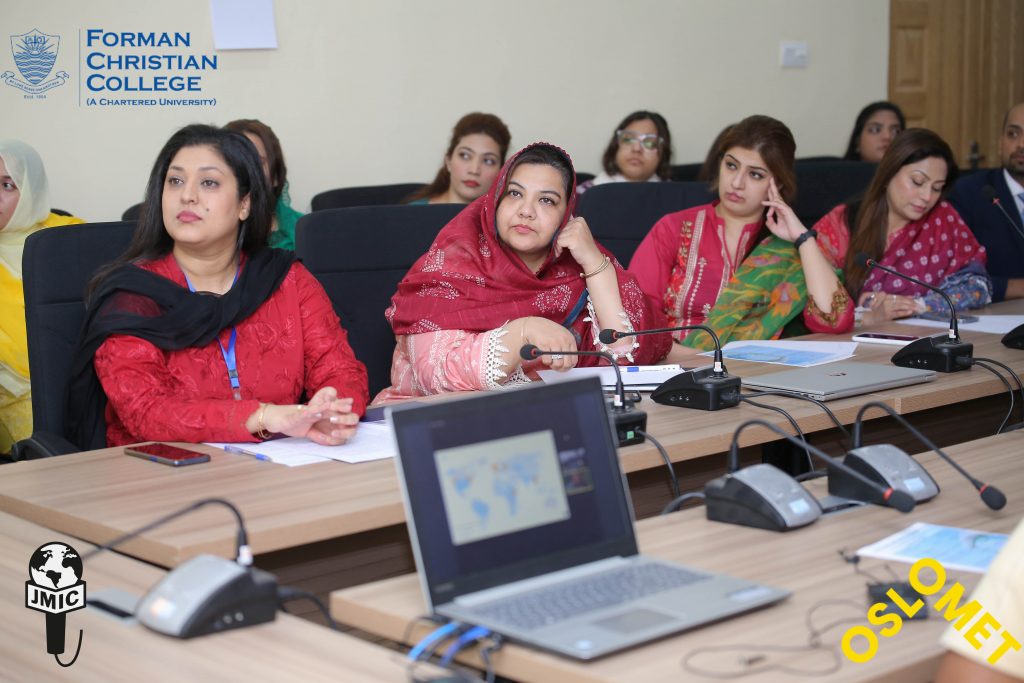Ensuring physical and mental safety: Training workshop on Safety of Journalists in Pakistan
By: Altaf Khan
Recent tragic violence in Pakistan, including the bomb blast in a Peshawar mosque earlier this year, underscore the importance of safety training for Pakistani journalists and journalism students. Violent conflict few kilometers from the training site in the city of Lahore, also made this a strategic and practical exercise for organizers as well as the participants.
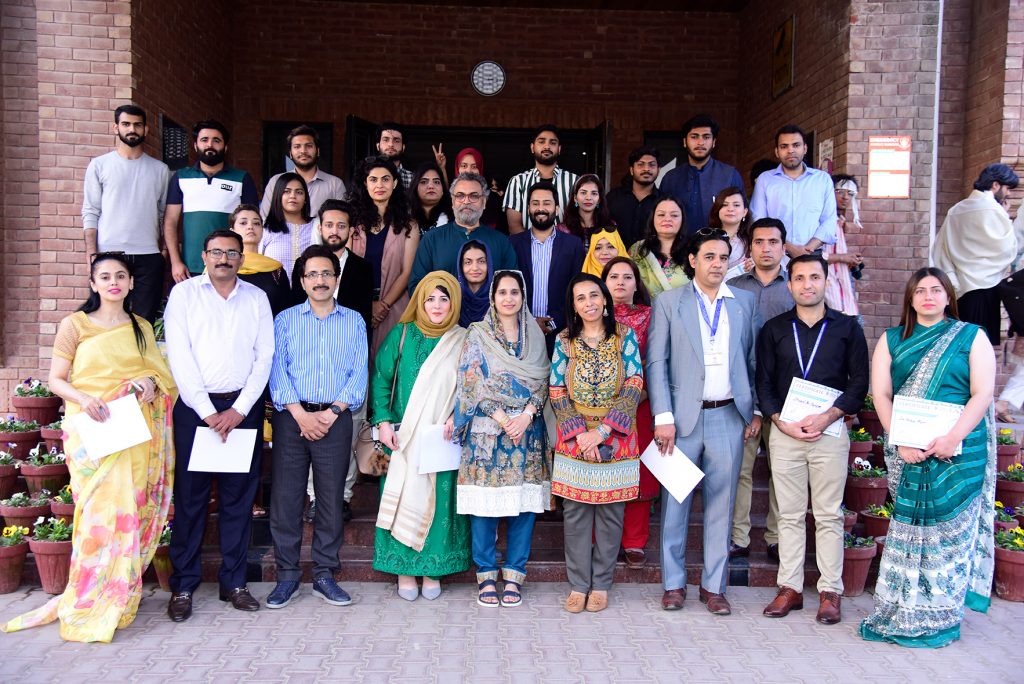
The yearly journalists’ safety workshop under the title Ensuring physical and mental safety of journalists amid violent events took place at Forman Christian College University, Lahore, Pakistan from March 14 th to 16 th , 2023. The yearly event is a collaboration between JMIC OsloMet and FCCU. Besides the training the workshop also had a book launch on day two. The book launch of Abeer Saady’s book on safety of women journalists took place on March 15 th , 2023, the second day of the workshop. It was the Urdu translation of the IAWRT Safety Handbook for Women Journalists, What If…?, Ms. Sabahat Afsheen is the translator of the handbook.
A total of 36 participants completed the certification, 19 female and 17 male. Four guests from outside Lahore participated in workshop from Islamabad and Peshawar. Three female participants couldn’t join
due to personal reasons. The workshop focused on personal safety of journalists in violent situations.

The workshop was planned within the context of recent tragic violence in Pakistan, especially the bomb blast in a Peshawar mosque in the middle of a highly secure zone in the city. But at the time of workshop the host city, Lahore was in the grip of violent conflict, happening a few kilometers from the workshop venue. This made the whole planning for the days a strategic exercise for organizers as well as the participants. The workshop was successful in many ways. The first and foremost of these is the commitment of the participants who strategically planned their participation on each of the three days.
They reached the venue from different parts of the city and fully participated by sharing their daily experiences of planning and execution of their risk assessments, arrival and departure plans and sharing their perspectives about a developing situation.
They not simply shared the perspectives but also got into role playing, interplaying different roles in the process of reporting on violent events. Both physical and psychological safety were discussed and presented. The book launch on the second day of the workshop very well fit into the whole program. The importance of safety of female journalists amidst the digital media trolling and harassment was a very welcome element of the training.

One big challenge in such events when these happen amid violent outbursts is to get the news regarding the event published in the media. It is not a must, but it is part of the exercise to ensure that a social impact news isn’t lost in politically hostile news cycles. Networking for placement of the proceedings in radio and print (hybrid) media was successfully done. The event got good news coverage. In this manner the information reached a larger audience. Impact multipliers are always important.
The immediate context of this workshop is also a big source of realization of the troubles working journalists go through in their day to day performance. Educators and students need to know the real life, everyday challenges of the profession. During the role plays and presentations each group had at least one member who had firsthand experience of the troubled area on the first evening of the workshop. This is an ideal, laboratory like situation where on the first day one gets a detailed introduction to potentially violent ecosystem. On the same day one visits a controlled scene of such a place and incorporates the experience during the second and the third day.
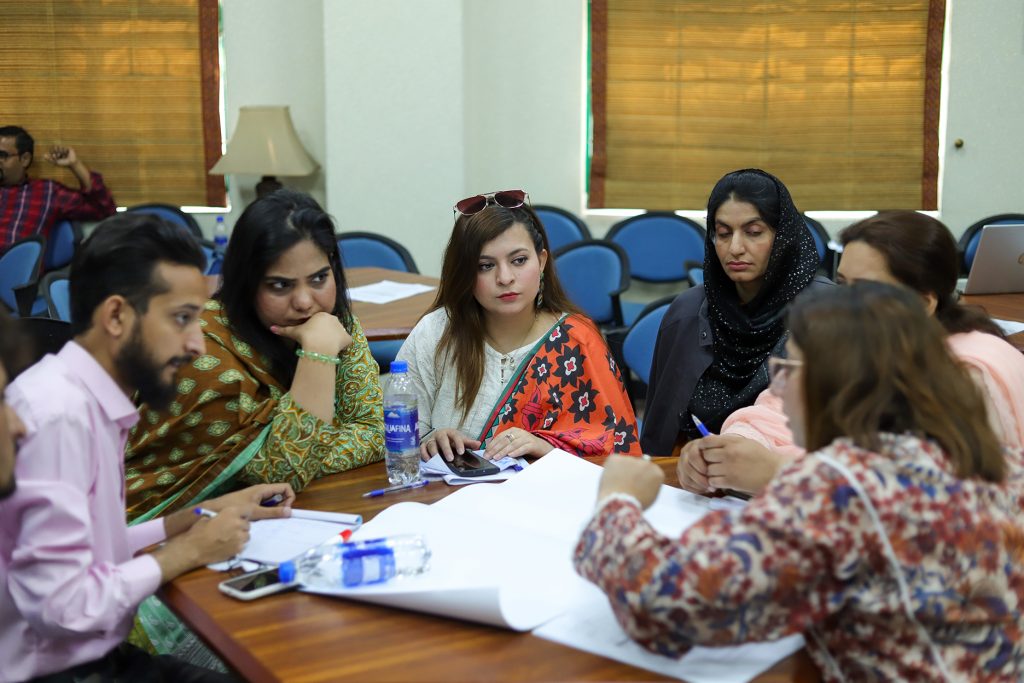
The whole workshop and the book launch helped in a deeper understanding of potentially violent situations and the skills to deal with these. It also helped the trainees to a deeper appreciation of
journalistic work. True, the perils of the field can be only understood in the field, but the workshop helped in reaching nearest to understand working in violent ecosystems, a need of the hour in politically volatile and polarized societies and systems of governance.

